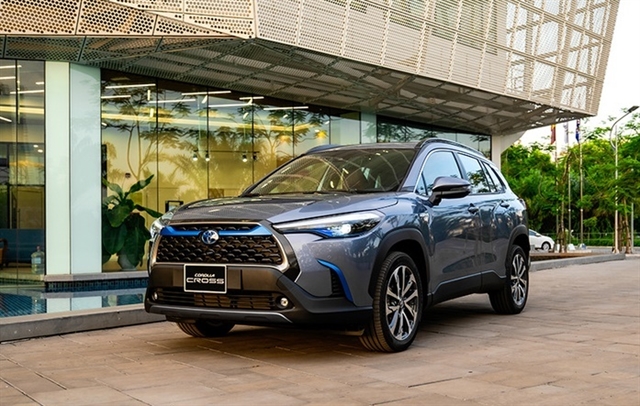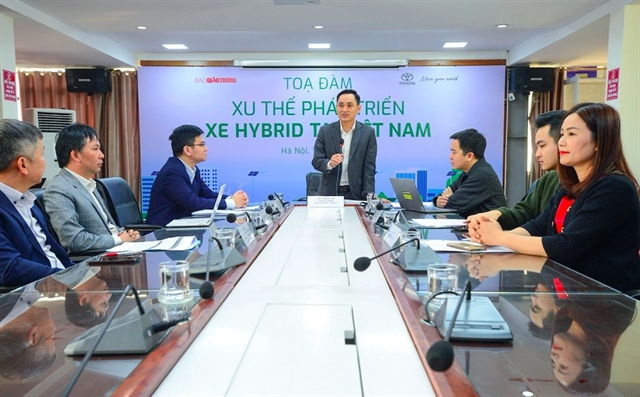 Economy
Economy

 |
| The "Hybrid vehicle development trends in Việt Nam" discussion held on Tuesday. — Photo vietnamnet.vn |
HÀ NỘI — It is necessary to study proposals from experts and businesses to have more practical policies for electric vehicles, particularly hybrid vehicles.
To advance toward Việt Nam’s CO2 emissions reduction targets, preferential policies are needed to encourage consumers to buy hybrid cars, contributing to protecting the environment.
Many are willing to spend more money to buy hybrid cars, but incentives for this market should also be considered.
Discussing this issue, Phan Lê Hoàng Linh, head of Manufacturing Department under the Ministry of Industry and Trade’s Industry Agency, said that the ministry has recently received proposals from manufacturers on policies supporting hybrid cars.
However, the proposals lacked specific scientific evidence on the level of emissions reduction hybrid cars would contribute, he added.
The development strategy needs to be designed in consideration of factors such as infrastructure, consumer habits, car companies' strategies and the national energy transition roadmap.
Strategy builders aim to have a roadmap for all types of environmentally friendly vehicles, including hybrid vehicles, and to evaluate the role of hybrid vehicles in the green transition period.
The State currently has no incentive policies specifically for hybrid cars, said Linh.
There is a view that subsidising hybrid cars is not appropriate because of the policy’s impact on the State budget.
However, hybrid car users themselves are also contributing to reducing emissions and protecting the environment, so there should be support from the State for this group of users.
Many businesses and associations have proposed amendments for incentive policies for electric vehicles based on CO2 emission criteria, a method many countries use.
If this direction is followed, users of hybrid cars will also receive incentives because they also reduce emissions.
"The Ministry of Industry and Trade will study proposals from experts and businesses with specific data and research, so that when presented to higher levels, there will be more practical policies for electric vehicles, and hybrid vehicles in particular," said Linh.
At the discussion titled "Hybrid vehicle development trends in Việt Nam" held on Tuesday, some said hybrid cars have opportunities as an intermediate solution in the conversion roadmap from vehicles using internal combustion engines to electric vehicles.
In fact, hybrid cars have been researched and developed for a long time but have only recently become popular worldwide as the trend of electrifying vehicles becomes more urgent.
Besides, hybrid vehicles have many factors suitable for the Vietnamese market. First, Vietnamese people like new car models with lots of technology and features.
With a long usage time, this is also an advantage of hybrid cars. Currently in Việt Nam, hybrid cars are also a more convenient option than electric cars.
However, hybrid is a new technology which often appears on high-end versions offered by car companies due to high investment costs. — VNS




